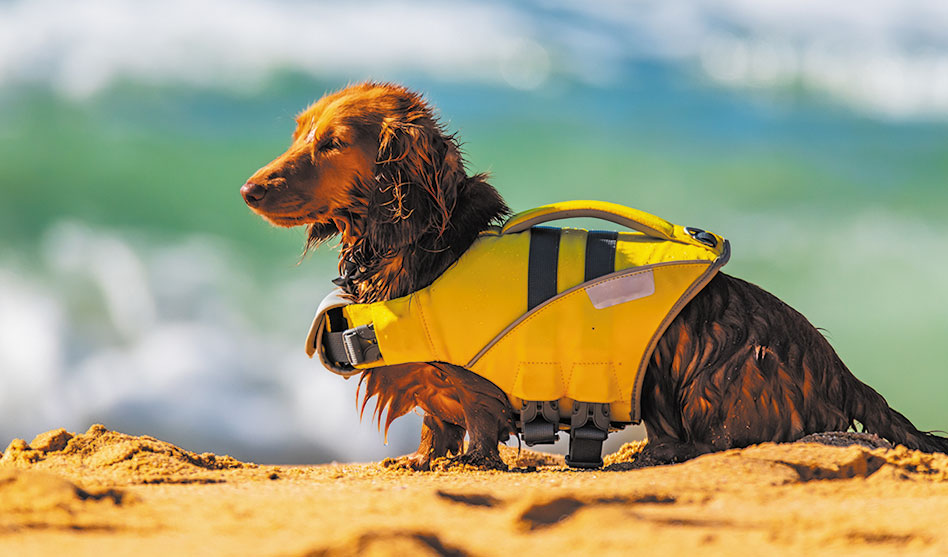 Hello, Woof readers! Fall is around the corner, and I bet many of us cannot wait to enjoy the flavors and scents of the season. In the meantime, I want to discuss the topic for this month’s column: September is now our National Disaster Preparedness Month (previously celebrated in June), which raises awareness on how to be prepared as pet parents for emergencies like tornadoes, storms and flooding among others.
Hello, Woof readers! Fall is around the corner, and I bet many of us cannot wait to enjoy the flavors and scents of the season. In the meantime, I want to discuss the topic for this month’s column: September is now our National Disaster Preparedness Month (previously celebrated in June), which raises awareness on how to be prepared as pet parents for emergencies like tornadoes, storms and flooding among others.
Let us start with the very basic needs of every pet: having a good supply of food and water. I recommend having at least enough food and water for several days in air tight containers. This supply should not be the one that you use on a daily basis, since these containers must be readily available in case you need to leave in a hurry in the event of an emergency.
Make sure the food is the same brand and type that you regularly feed your baby to avoid any potential vomiting or diarrhea that could happen with an abrupt change in diet. You may also want to have treats and toys set aside and maybe a blanket, too, to help your baby feel safe when away from home during stressful times.
Other than food and water, you will also need to have at least a two-week supply of any medications that your pet is on, as well as heartworm and flea/tick prevention. I would recommend having a physical and/or digital copy of your pet’s vaccine records (including the rabies certificate) with these items, as they are usually required when a pet is boarded.
Boarding facilities usually require the rabies and bordetella (kennel cough) vaccines, but each boarding facility has different requirements. Some may require up-to-date fecal results and other vaccines, so make sure your baby routinely sees your veterinarian to have all the basic wellness care needs taken care of.
It would be smart to have a first aid kit along with these items, and, as an extra precaution, make sure you check the expiration dates of the medications and kit contents at least every six months or so. Consider saving contact information on your phone for at least one emergency veterinary hospital in your area.
All of these items can be kept in a backpack or a duffle bag in a very accessible area, where you can easily just grab it if you have to evacuate your home.
In addition, it is important to have a pet collar with updated ID tags and updated rabies tags. If your cat or dog is not microchipped, consider having this performed, as dogs and cats can escape during an emergency, and if they do not a have microchip or a collar, it would be even more challenging to get home safely.
A microchip is about the size of a grain of rice, and it is implanted underneath your baby’s skin, in between their shoulder blades. This microchip, contrary to popular belief, does not have GPS (yet). It is beneficial only if your baby is taken to a shelter or a veterinary hospital to be scanned and if you have registered the microchip with your contact information. You have to make sure that if you move or change your phone number, you would need to contact the microchip company to update your contact information.
Lastly, consider having a carrier or portable crate handy. If you have a kitty, consider having a separate litter box and new litter as well. You may also want to have products that you need to clean the crate or carrier and/or litter box.
Needless to say, we truly hope we never have to face any emergencies where we may have to run out of our homes. But should the time come, it would serve us and our pets well to be as prepared as possible, especially since our furry loved ones depend on us.
I wish you all a beautiful start to the fall season and that we continue to stay as healthy as possible. ¡¡Abrazos para todos!!
Dr. Josh owns Isla Veterinary Boutique Hospital at 14380 Marsh Ln. Ste. 110 in Addison. Call 972-738-1111 or visit IslaVet.com.
















